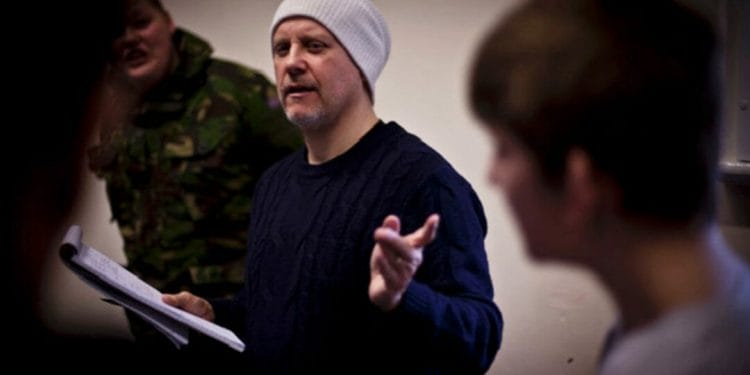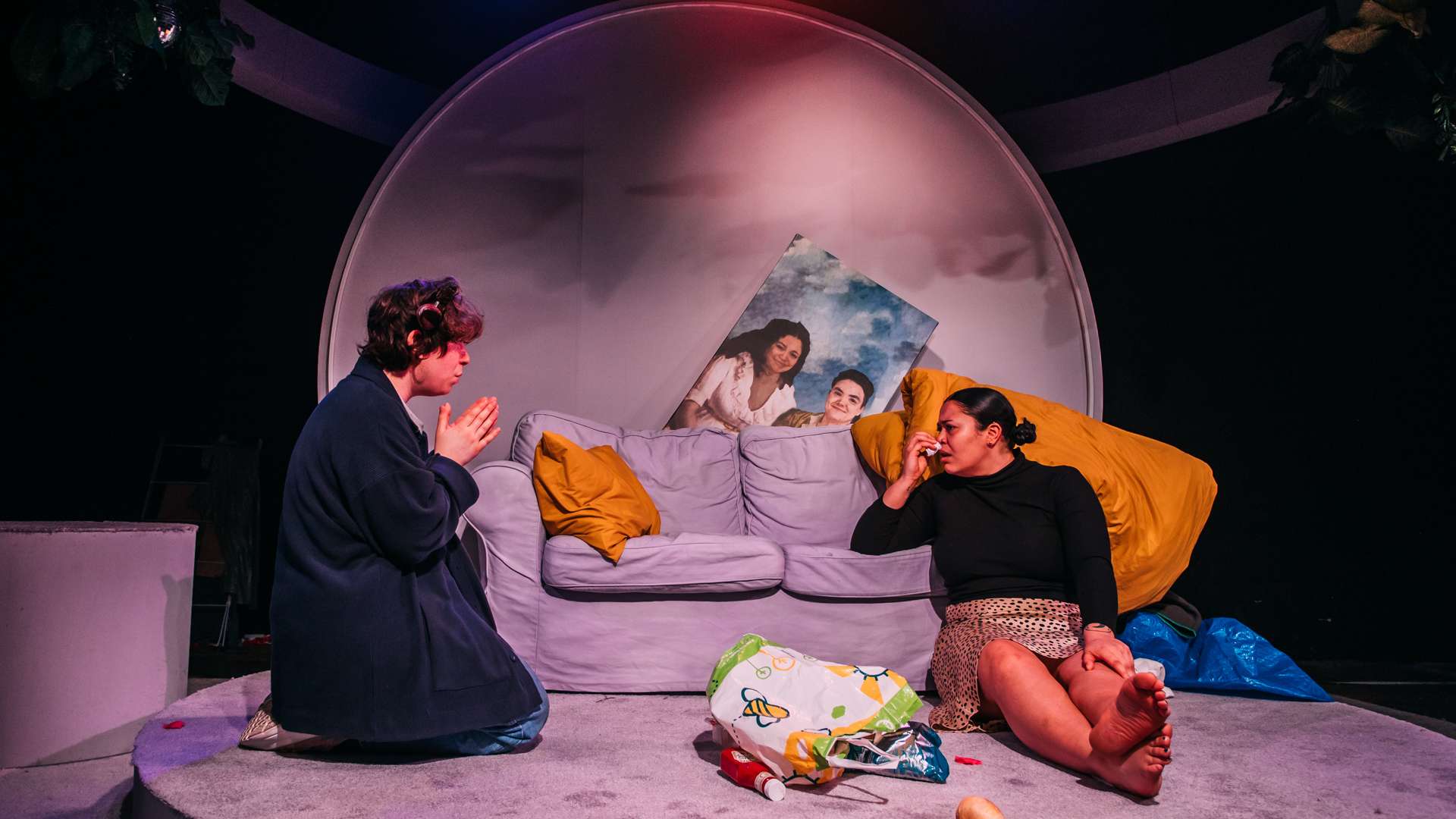Cardboard Citizens Theatre Company will tour Femi Keeling’s new Forum Theatre play Rising to hostels, prisons, day centres, refuges, and youth centres across London throughout November, as part of its outreach programme working with people most at risk of, or affected by, homelessness. Associate Director of Cardboard Citizens, Stuart Mullins joined us to tell us more.
Rising is embarking on an unusual tour, what can you tell us about it?
Touring to hostels and prisons is part of the DNA at Cardboard Citz. Its what we’ve mostly done for the last 26 years. It’s often where we meet the people who are homeless or potentially homeless, who very often go on to become part of our community, or our membership. They then engage in what we call the programme, which often leads to radical changes and improvements in their lives.
It’s not therefore ‘unusual’ for us, and in general a tremendous amount of theatre in this country doesn’t tour to theatres; often it tours to schools, community centres, village halls and many other aspects of society.
Why is it important that you are taking Rising to these places?
We specialise in what is called Forum theatre. If it helps think of it like this: Rising will have two acts both exactly the same. However, in Act One the lead part, in this case Terence, is played by a member of the cast. In this case Greg Shewring. At the end of Act One Terence ends up in a very difficult place. This is partly because of the ‘system’ and partly due to his own poorly informed decision making. In the second act the audience get the chance to step into the part of Terence and try and make things better. Often in hostels and prisons there are those who have lived experience of what the lead character is going through. By stepping into role the audience member gets to try out different strategies but in a safe space.
What do you like most about Femi Keeling’s writing?
When I read a script Femi had sent I knew she understood the craft of playwriting. Her writing is authentic, beautifully understated and precise. Writing a piece for Forum is different from normal playwriting because you have to leave room for the audience to solve the challenges faced by the central character. You therefore have to leave some issues unresolved. Ultimately by the end you have to leave the character in a worse place than where they started. Femi with dramaturgical support embraced this challenge and has created an excellent example of Forum theatre. However, she has managed to maintain her voice in the piece.
What do you hope the people that see Rising will take from it?

I hope that for some of the people who see it in the hostels and prisons it might allow them to understand how they’ve found themselves in their situation, and how things could change. Or through the Forum they are able to support others by sharing their experiences. For the general public I hope they bare witness to an authentic piece of quality drama which depicts the extraordinary inequality that a deeply unfair system creates. I am of course referring to the changes in the benefits system which has led to the introduction of Universal credit.
What are the challenges and benefits of performing in a non-conventional theatre space?
Despite constant attempts by various organisations and funders to change this, theatre is still mostly seen by the same white middle class people. By taking theatre out of the theatres we are more likely to reach a new and more diverse audiences. It’s what Cardboard Citz has been doing for years! The challenge is to be adaptable to all those varying spaces. This requires flexibility on the part of the actors, the designer and the stage management. Ultimately this makes us more imaginative in what we create, and more open to our audience’s interaction.
There’s also a chance for people to see it via a livestream, tell us about that?
We’re presenting Rising as part of the launch of the Mayor of London’s Winter Homelessness Campaign. We’ll be performing in the central Council Chamber of London City Hall, so it’ll be quite a different experience from the other shows on the tour. We’re really excited that audiences will be able to see the show, and hopefully contribute some ideas to the forum. It’s a great opportunity to bring the ideas behind the play to a completely different audience. Keep an eye on the Cardboard Citizens website for details of the livestream of this performance (www.cardboardcitizens.org.uk)
What makes this cast and creative team uniquely placed to portray homelessness?
Some of the cast have experienced homelessness. They are what we call our member actors. Often, they’ve come through the programme and shown an ability to become professionals. The hostel tour gives them a chance to build on their talent and develop their experience. It also means that they have an integral understanding of the challenges Terence faces.
Femi has worked in prisons and supported many young ‘Terences’ to move on in their lives. The play is therefore something close to her heart.
As for me I’ve watched, admired and supported the work of Cardboard Citz for many years, is there a theatre company who has actively changed so many lives.

















